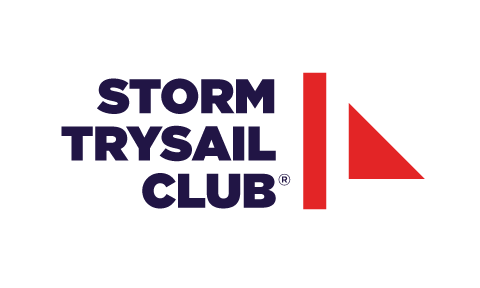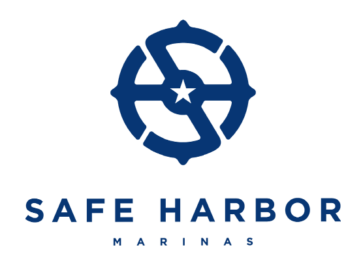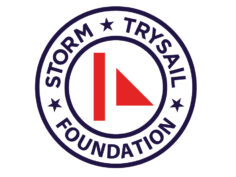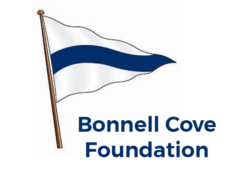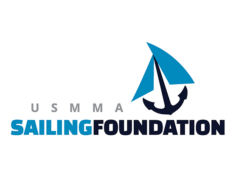Remarks by Event Chairman Richard du Moulin
OPENING REMARKS

Richard du Moulin, veteran offshore and America’s Cup sailor, past STC Commodore, founder of Junior Safety-at-Sea, and head of STC’s Adult Safety-at-Sea (SAS) seminars, was the driving force behind the symposium. His opening remarks, below, set the stage for the day’s work.
“The sinking of the Titanic in 1912 was the most traumatic and famous event in maritime history. Even today, if you walk down the street and ask someone to name a ship, odds are they will respond ‘Titanic.’ The loss of the Titanic was such a shock that in 1914 the largest international conference in history convened: The International Convention for Safety of Life at Sea. Their output became known as SOLAS and is the foundation of the body of maritime safety regulation as we know it.
In 1979, yacht racing had its own Titanic – the Fastnet Race – where the loss of 18 lives shocked our sport. Our response included major revisions to organizing ocean races, measuring yacht stability, and providing formalized Safety-at-Sea training.

Just as the loss of Titanic was intimately tied to a failure of Leadership, so were most of the losses in the Fastnet Race and many of the fatal sailing incidents in the ensuing years.
The father of the U.S. Nuclear Navy, Admiral Hyman Rickover, correlated Leadership with accepting responsibility:

“Responsibility is a unique concept. It can only reside and inhere in a single individual. You may share it with others, but your portion is not diminished. You may delegate it, but it is still with you. You may disclaim it, but you cannot divest yourself of it. Unless you can point the finger at the man who is responsible when something goes wrong, then you never had anyone really responsible. Responsibility can be shared; accountability cannot. Being accountable not only means being responsible for something but also ultimately being answerable for actions.”
The accountable person in offshore sailing is the Owner, Skipper, or Person-in-Charge.
Our Club and other leading sailing organizations, such as CCA and US Sailing, have long been in the vanguard of developing new methods of training sailors to venture offshore. However, the concept of ‘Leadership’ has been largely ignored while use of safety-related equipment and specific evolutions such as Crew Overboard (COB) Recovery have been emphasized. Hands-On Safety-at-Sea training, initiated by the Storm Trysail Club and United States Merchant Marine Academy at Kings Point in 2006, and now offered by the Cruising Club of America, New York Yacht Club and many leading clubs, barely touch on Leadership. Yet Leadership is the key factor that ensures safe offshore sailing.
Without Leadership, the unsafe situation is more likely to occur, and even more likely to have a bad outcome. Leadership is the glue that holds it all together. To quote from the Lord of the Rings, “Leadership is the Ring that Binds all the other Rings.” Good Leadership minimizes the chance of a dangerous situation, and when something goes wrong offshore, good Leadership maximizes the chance for a satisfactory outcome.
For the Symposium, we have brought together a variety of experts with different backgrounds to venture into the subject of better understanding Leadership in an offshore sailing context. Our objective is to better define the role of Leadership in offshore sailing, the characteristics and actions of good Leaders, enumerate best practices, and develop specific actionable plans to educate, train and develop offshore Leaders.
Our fundamental premise for this Offshore Sailing Leadership Symposium is a deeply held belief that Leadership is the core competence required to achieve our goal of safe and rewarding offshore sailing. This implies that Leadership can be learned and improved, that good Leaders can be developed into excellent Leaders, and uninformed or poor Leaders can be acquainted with their responsibilities and seek training.
It is the objective of Storm Trysail to explore Leadership in a collaborative manner and make all outputs available to all organizations involved with educating, preparing and training sailors who venture offshore, and organizing authorities of offshore events.”
In addition to this report, there is a 70-minute video recap:
CLOSING REMARKS
“During the Keynote, Panel, and Breakout Group discussions, several themes emerged as best practices critical to successful Leadership:
The Skipper/Owner is Ultimately Accountable
- Leading with High Character
- Selecting and Training the Team
- Planning and Preparation
- Establishing Clear Roles and Responsibilities
- Placing Team Before Ego
- Promoting Open Communication
- Maintaining Situational Awareness
- Adjusting Goals and Plans as Conditions Require
- Remaining Calm in an Emergency
- Instilling Optimism
- Never Giving Up!
In the panel discussions, the distinction between being the “Leader” and “Leadership” became clear. At sea, as in many life circumstances, there needs to be one Leader who is the person responsible for the safety and success of the venture. The Leader must ensure proper preparation of the boat, selection and training of the crew, planning the voyage, maintenance of situational awareness, and provide the ultimate Leadership when a crisis develops and possibly changing the plan as needed. As Admiral Rickover, father of the U.S. nuclear navy, noted, “The Leader is the person who cannot abdicate the ultimate responsibility for a vessel and crew, and who is held accountable.”
The Effective Leader
An effective Leader must select a team with the best balance of skills, strength and attitude, and capitalize on these resources. The designated Leader (Skipper/Owner/Captain) should ensure that each member of the team is engaged with planning and preparations, assigned responsibility for specific systems or functions (electronics, damage control, safety equipment, medical, navigation, sails, rigging, engine, food), and active in the operation of the boat whether on a race or passage. This sharing of responsibility energizes the entire team. Of course, each of the crew can also demonstrate elements of Leadership – a sharing of responsibility – enhancing the level of performance of the entire team. Nevertheless, as noted, the primary responsibility remains with the Leader who is ultimately accountable.
Shackleton
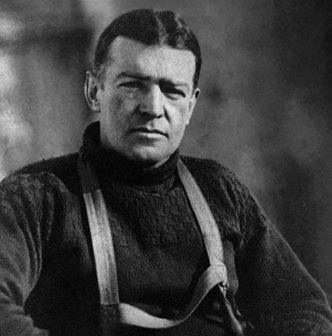
One of the greatest examples of “offshore” Leadership, demonstrating key traits and skills, happened over 100 years ago. In 1914, while World War I raged in Europe, Sir Ernest Shackleton’s exploration ship Endurance was crushed in the Antarctic ice. Shackleton and his 27 men were stranded in Antarctica. As their situation deteriorated, Shackleton was honest with his men, and adjusted the goals of the expedition from crossing the Antarctic continent via the South Pole, to surviving and reaching Elephant Island at the edge of the Antarctic continent. Then, with five of the crew, Shackleton sailed one of the small boats 900 miles across the Drake Passage to South Georgia for help. Shackleton was empathetic with his men, which is often attributed to growing up in a household with a mother and sisters. He was always willing to share in tough jobs yet maintained situational awareness of the big picture. He acted confident in the group’s survival and used humor to keep up spirits. In the end, all 28 men made it safely back to England.
Perhaps the most striking proof of the powerful Leadership impact Shackleton had on his men’s survival comes from their private diaries. Despite the crew’s desperate circumstances, these entries exhibited a high degree of optimism that they would prevail over their incredible challenge:
“No matter what turns up, he is always ready to alter his plans and make fresh ones, and in the meantime laugh, joke, and keep everyone’s spirits up. He inspires optimism in everyone.” – Captain Worsley of the Endurance
“Shackleton makes many contingency plans in great detail, while still remaining flexible. He isn’t afraid to change his mind as the situation warrants.” – First Officer of the Endurance

On behalf of Storm Trysail, I want to thank our generous Sponsors, hard-working Organizing Committee, terrific Facilitators and Scribes, and all attendees for your contributions to this Report. Together we have helped define Offshore Leadership, enumerate Best Practices, and come up with an Implementation Plan. There is a lot of work before us, but by our continuing collaboration, I believe that we can make great progress with educating and training our Offshore community in the most important practice of excellent Leadership.”
Acknowledge turbulence, embrace its opportunities, and meet its challenges with confidence and effect.
– Professor Nancy Koehn, Harvard Business School regarding the lessons of Shackleton
